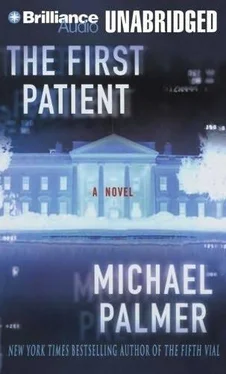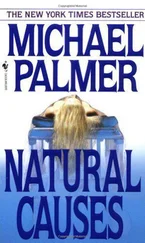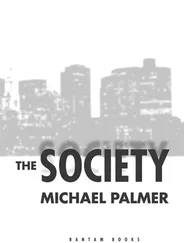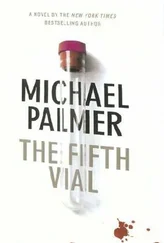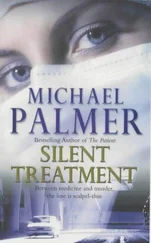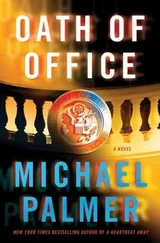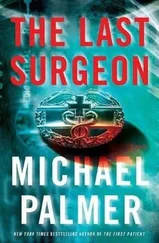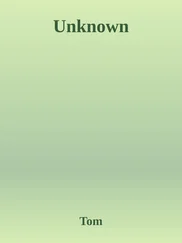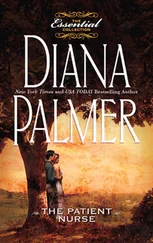It had required more than an hour in the operating room to debride the wounds in Gabe's hip and shoulder. Gratefully, there was nothing critical to repair, and he left the hospital twelve hours later. After that, he had spent as much time as possible with Alison when he wasn't giving statements to the investigators from the Secret Service and police. What Alison's plans were after everything was cleared up remained uncertain, but he was hopeful they would somehow include him.
The shot that had brought down Treat Griswold, she told him-the improbable, remarkable shot-was one she had made over and over in her mind as she lay tied up, humiliated, and in continuous agony in the basement of the house on Beechtree Road. During those endless hours, what little hope she hung on to became focused in that shot. None of the hundreds she imagined ever missed its mark.
Several times during the nights they had spent together, Gabe held her and dried her tears at the notion of having taken a life the way she did-even one as monstrous as Treat Griswold's. The story she shared of her battles in L.A. to clear the name of a fellow nurse, and also her subsequent torture at the hands of Griswold, more than justified her actions in Gabe's eyes. But there were tears nonetheless.
Gabe's own reaction to having killed the men sent to kill him was far more tempered-certainly less anguished than on the two occasions in his life as a physician when his decisions, forced during raging medical emergencies, contributed to the death of a patient.
Pine Grove Cemetery.
With a heaviness in his heart, and even some trepidation, Gabe left his car on the street and entered the small cemetery through a wrought-iron arch, using a cane for support. In his other hand he carried a single rose. Through the gloom and the persistent drizzle, he could make out the silhouette of a man, standing motionless by one of the stones.
Thirty years.
The man, about Gabe's height but thinner, had his head bowed. He looked up as Gabe approached. His face was narrow, his posture proud.
"Singleton?"
"Gabe."
"All right. If you wish, Gabe. I accept you calling me Leon."
Uretsky spoke with just the hint of a Russian accent and Eastern European phrasing.
"Thank you for seeing me like this."
"I have twice tried to kill you. Meeting you seems the least I could do."
"I'm glad you weren't so good with your guns."
"The truth is, Doctor, I am quite good. I was a marksman in the Russian Army before I moved here at age twenty-five. The weapons I used those two times were mine, bought some years ago for target practice… to stay sharp. For all those years I thought about revenge. Then, at the last minute, both times, I just could not do it. Thirty years ago I could have, I believe. I tried to find you after you left prison, but I was a recent immigrant and had little means. Each trail took me no place and cost me money. Finally, I just gave up. But I never forgot. Then, when a friend showed me the article about you-"
He was unable to continue.
Gabe moved a step nearer to Uretsky, unsure whether the moisture on his own cheeks was from the drizzle or from his eyes. One thing was certain. In that instant, he felt an indescribable closeness to the man.
"You loved her very much," Gabe said.
"I was put on this earth to love her," Uretsky replied. He motioned to the headstone, which had both the names Irina Kursova and Dimitri Uretsky inscribed. "And I believed you took her from me. Her and my son."
"We had no right to drink like we did and no right to drink at all, then drive."
"No one does. You sent the president out to see me because you knew I'd never believe you if you told me he was the one."
"Do you believe me now?"
"I do."
"For thirty years I have had to live with Irina's and Dimitri's deaths if not as painfully as you have, then nearly so."
"Stoddard did you a deep wrong not to tell the truth from the beginning."
"I agree. I can't begin to tell you what getting kicked out of college and then spending a year in a maximum-security prison was like. In some ways, though, Leon, you have broken the spiral of tragedy by your unwillingness to take my life. There is nothing more wonderful you could have done for your Irina."
"Perhaps," Uretsky said. "Perhaps you are right. Are you still leaving as you said on the phone?"
"I am. First thing in the morning. I have had enough of Washington and politics."
"Do you think we should let the public know the secret of the man they have entrusted with their country?"
"I haven't really decided. You?"
"I need to think-to go back to baking my bread, and to think. Irina had only been in this country for six months when she died. She had already made great progress with her English."
"I think we should keep in touch, you and I-speak every week or two. I would like to get to know you better, and I wish to know what you decide. If you decide you need to go to the press, I will probably choose to support you."
"Andrew Stoddard has hurt us both."
"Badly. But for both of us there is still life. Now, I suppose, it is he who will suffer. Drew can be self-centered and callous, but he is also very human. Regardless of what we decide to do, he will suffer. Do we need revenge for what he has done? I don't know. I really don't know."
"Someone else can run the country."
"He's done a good job, I think, but yes. Someone else could run it and maybe do just as well."
"Maybe better. I need to think."
"I understand."
"I have the number you gave me in Wyoming. I promise to call."
"And I have yours."
"We need to talk some more-to share our feelings."
"I think so, Leon. I think we can be of help to each other."
"I could use that."
"So could I."
Gabe set the rose down at the base of the stone. He nodded toward Uretsky, acknowledging their bond, stood there for another silent minute, then finally turned and hobbled back toward the gate.
The scene might have been an oil by Frederic Remington or a photograph by Bert Greer Phillips. The barn… the cabin… smoke curling from the fieldstone chimney… the hitching rail… vapor rising from the nostrils of the three saddled horses… the pure white rime, covering the ground for as far as the eye could see… the slate-colored sky…
Midwinter on the high plains.
Bundled against the deep chill, Gabe burst out the back door of his ranch, purposely leaving it ajar. He mounted Condor with fluid, experienced grace, wincing just a little at the stretching of five-month-old scar tissue near his shoulder and his hip.
"Come on, you guys," he called out. "I want to be as far away from civilization as possible when the clock strikes ten."
"Hold your horses, my friend," a man's voice called back. "The lady is helping me get my boots on. Hey, hold your horses-that is very funny, no? You really are holding your horses."
Finally, Alison emerged into the cold in a leather rancher's coat with a heavy fleece collar and a western hat with a rattlesnake band and eight-inch feather.
Radiant , Gabe thought, as he did every time he saw her. Absolutely radiant .
Behind her, Leon Uretsky walked gingerly in new boots. His borrowed western hat hung between his shoulder blades. His hair and eyes were raven dark, and his features were sharp and appealing.
"Left foot in the stirrup, Leon," Gabe said. "Then grab the pommel up there and swing your right leg over."
"This is your plot to get even, isn't it?" Leon asked.
"Come on, big guy," Alison urged. "You're going to love it. Besides, the doc here and I both work in the hospital. We're not going to let anything happen to you."
Uretsky swung his leg up and over like a seasoned cowboy. Then, for a few moments, the three riders remained motionless, breathing in the air and the spectacular silence.
Читать дальше
